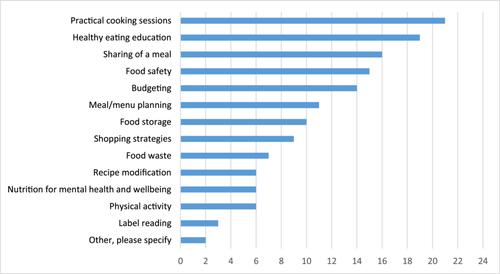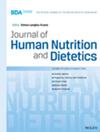Supporting the nutrition-related health and well-being of people experiencing socio-economic disadvantage: Findings from a national survey
Abstract
Background
People experiencing socio-economic disadvantage face significantly higher rates of diet-related health inequities. This study aimed to explore barriers, opportunities and potential solutions in providing food and nutrition services to people experiencing socio-economic disadvantage from the perspective of services providers. The present study is part of a broad co-design model to improve service provision for people experiencing socio-economic disadvantage.
Methods
A cross-sectional online survey involving 33 open and closed-ended questions was distributed to Australian governmental and non-governmental organisations providing nutrition-related support to people experiencing socio-economic disadvantage aged 16 years and over. Data were analysed using frequency distributions and conceptual content analyses.
Results
Sixty-eight responses were analysed. Services are predominantly offered by charitable organisations (90%), funded through private donations (66%) and reliant on volunteers (100%). Barriers to supporting clients’ nutrition needs include financial constraints, limited community engagement, understaffing, insufficient resources and knowledge gaps. Opportunities and solutions for enhancing support include increasing government funding, advocacy initiatives, stronger community collaboration and more holistic, customised services. Proposed recommendations include establishing purpose-built facilities or wrap-around services to expand access to health services, life skills, training and educational programs.
Conclusions
Services face challenges including volunteer reliance, limited resources and inadequate government support, hindering food provision. Client barriers include transportation costs and lack of social support. With dedicated financial support, services can offer comprehensive assistance, including community spaces, staffing, health and social services and training. Community partnerships can maximise funding impact. Solutions must address overall well-being and broader social determinants such as income inequality and housing.


 求助内容:
求助内容: 应助结果提醒方式:
应助结果提醒方式:


